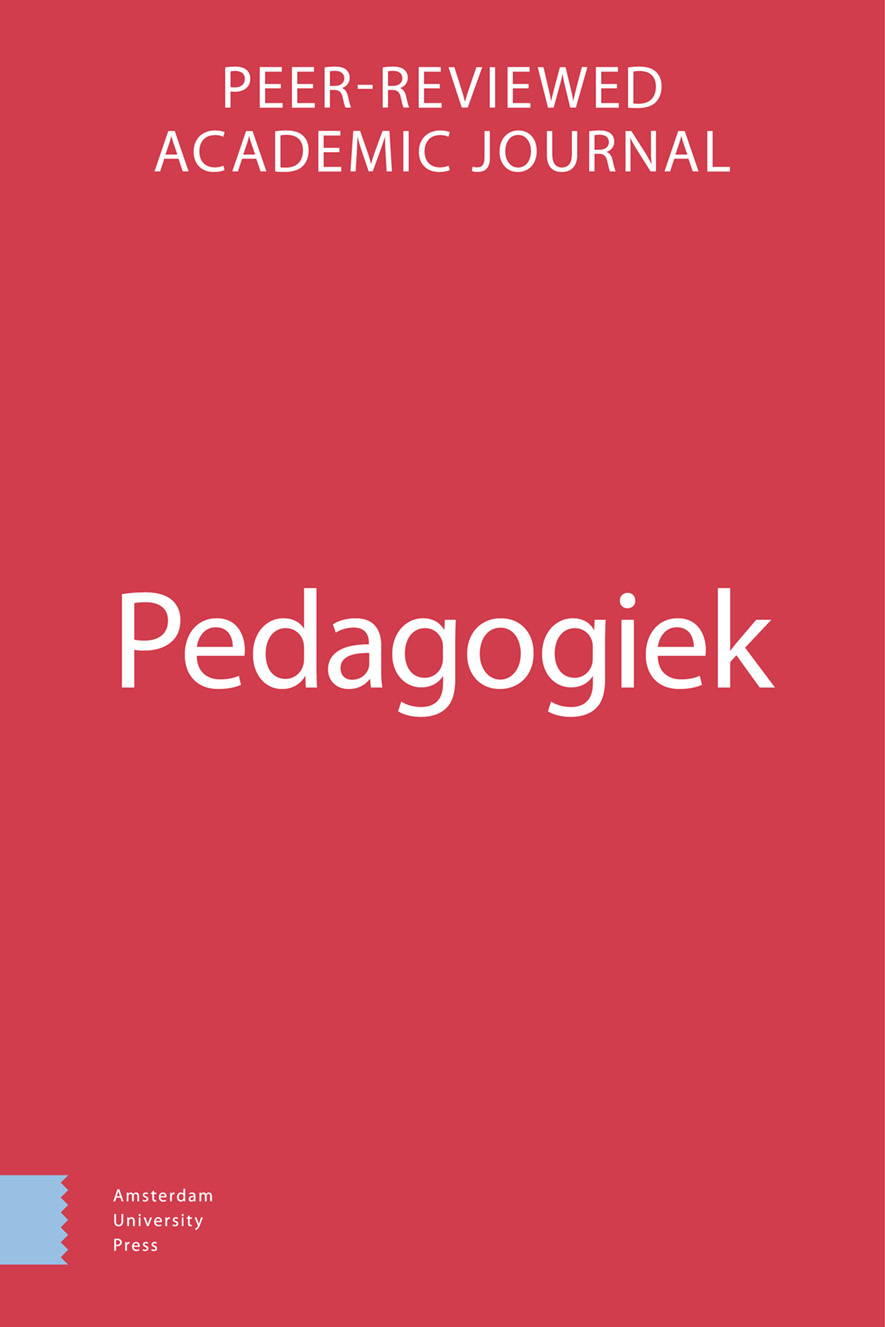-
oa Tijd voor pedagogiek
Over de pedagogische paragraaf in onderwijs, opleiding en vorming1
- Amsterdam University Press
- Source: Pedagogiek, Volume 38, Issue 3, Dec 2018, p. 327 - 348
-
- 01 Dec 2018
Abstract
Time for ‘pedagogiek’: On the importance of ‘pedagogiek’ for teaching and education
In this slightly edited version of my inaugural lecture, I try to show in three steps what the unique and distinctive contribution of ‘pedagogiek’ to the theory and practice of education consists of. I do this, firstly, by characterising ‘pedagogiek’ as an interested science of action, and by emphasising that the central interest of ‘pedagogiek’ has to do with emancipation, that is, with grown-up ways of leading one’s life. I use this, secondly, to debunk a rather common misunderstanding about the role of education in the formation of the person, by showing that this is not about the formation of individuals according to certain images or ideals, but rather is orientated towards the question of what it means to exist as (a) person. This reveals that ‘pedagogiek’ is concerned with existential questions: question about what it means to live one’s life, individually and together with others. In the third and final step, I show what this means for schooling, making a case for subjectifying education and a flipped curriculum, and outlining the connection with the question of democracy. I conclude by highlighting two areas for further research. Firstly, in order to counter a strong emphasis in education on observable behaviour, I make a case for the importance of interiority. Secondly, I suggest that we should not see education as a field in which we can apply humanistic values, but that we should rather raise the question what the fact that we are beings who teach and can be taught reveals about our humanity and human-ness.


